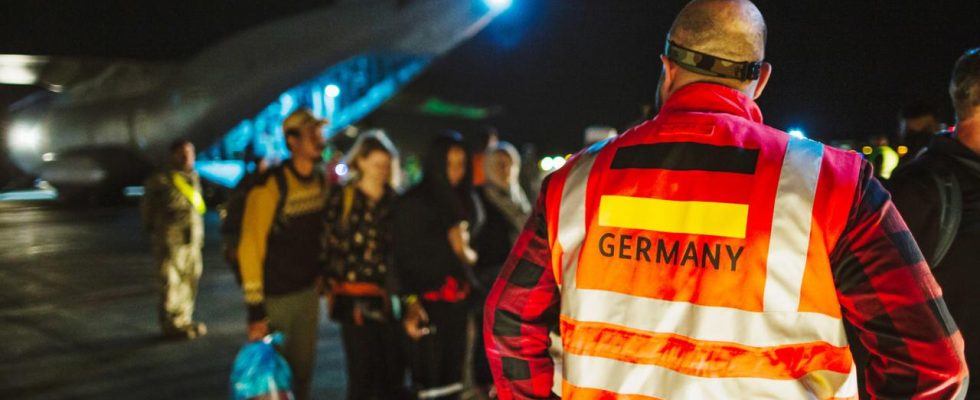The Bundeswehr has already flown around 500 people out of Sudan with an evacuation mission. But the locals, who helped the Germans for years, are left behind. Will this leave the local authorities in the lurch?
To learn lessons from Afghanistan – that is the noble promise of German politicians, which is currently working through the largely failed mission in the Hindu Kush, for example with a Bundestag committee of inquiry.
But when it comes to local staff, obviously nothing has been learned from Afghanistan, says Marcus Grotian, head of the local Afghan staff sponsorship network. This can now be seen in Sudan – where they are left behind and left to their own devices: “They are told – regardless of whether they are endangered or not: You have to fend for yourself. And that’s the catastrophic.”
In peacetime, Grotian criticized it in an interview with the ARD Capital Studioprepare plans and concepts for the local staff in every single country in which Germany is involved in an emergency: “So that you know which embassy employees and other employees have exposed and endangered themselves in such a way that they have to be evacuated with them. “
federal government does not want to let accusations stand in the room
However, the federal government does not want to accept the accusation that local staff are being let down. In any case, the situation in Sudan is completely different from what it was in Afghanistan at the time – also with regard to the local workers, explains Foreign Minister Annalena Baerbock when asked: “Unlike in Afghanistan, our local workers are not exposed to any special persecution.”
Baerbock says that the fact that they worked with Germans doesn’t matter at all in Sudan. And so the local employees – unlike in Afghanistan – would not have expressed the wish to leave the country.
Figures not comparable to Afghanistan
According to government information, a little more than 100 national staff are employed in Sudan for the German development workers from GIZ, and for the Federal Foreign Office it is a two-digit number. The dimensions are therefore completely different from those of the thousands of local workers in Afghanistan at the time.
But the number shouldn’t matter, warns Marcus Grotian from the local staff network: “We postulate that we think human rights are important everywhere in the world. But that the first thing we do is to abolish our own employees’ right to life, to leave them behind in a war zone, that’s okay I for catastrophic.”
The Federal Foreign Office sees this completely differently: not only are they still in contact with the local employees, they also continue to support them. “For example, by continuing to pay the salary,” explains Foreign Minister Baerbock. After all, the local employees had continued to support the Germans to the best of their ability in this crisis situation in the last few days.
Strack-Zimmermann: Don’t lump everything together
The chairwoman of the defense committee, Marie-Agnes Strack-Zimmermann, is clear in her choice of words when asked about the subject: “The primary task is to bring our own citizens to safety,” emphasized the FDP politician in an interview with the ARD Capital Studio. “We shouldn’t lump everything together and mix it up: that has nothing to do with Afghanistan,” advises Strack-Zimmermann.
One thing should be clear from all of this: the more the situation in Sudan escalates, the greater the concern that the locals, who until a few days ago were close to the Germans, are in danger. In that case, the discussion about lessons learned or not learned from Afghanistan in relation to the local staff is likely to swell again.

